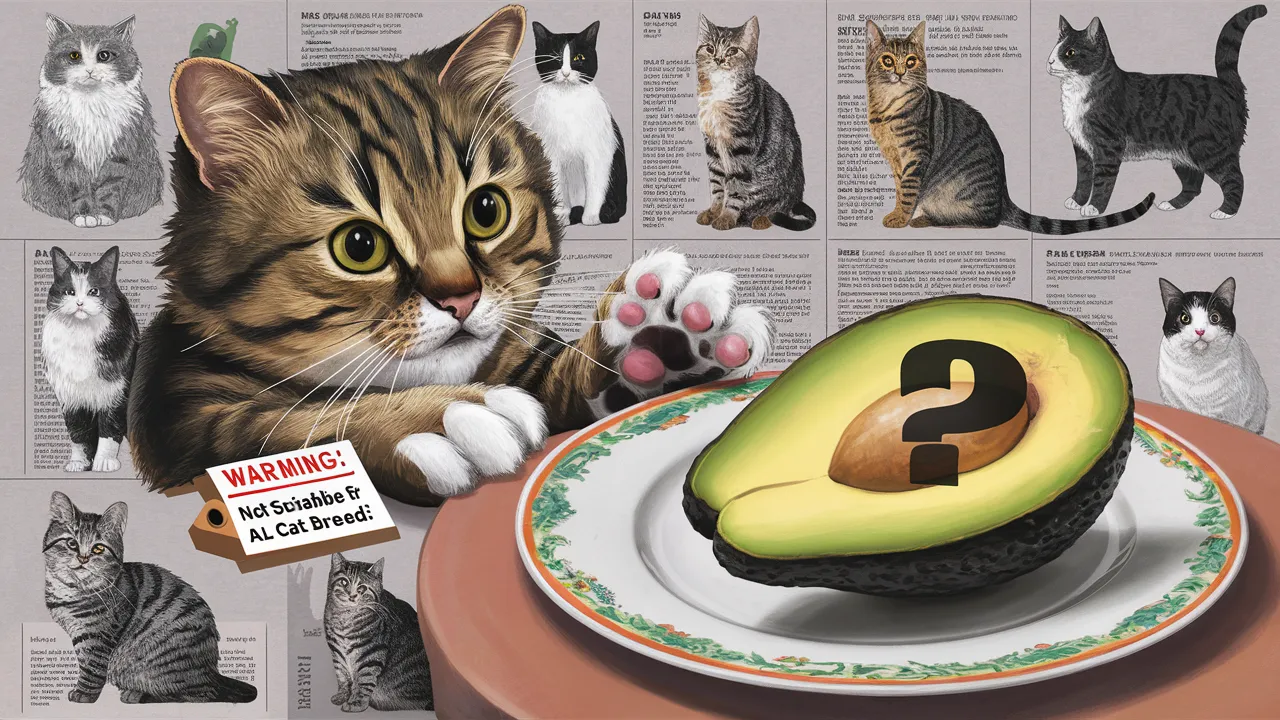Can Cats Eat Avocado? Is avocado safe for your cat? Find out if this popular fruit is a healthy treat or a dangerous snack for your feline friend. Learn about the risks and what to do if your cat eats avocado in the article Infor Cats.
Can Cats Eat Avocado?
No, cats should not eat avocado.
Avocados contain persin, a toxin that is harmful to cats. While the amount of persin in avocados is not usually fatal, it can cause vomiting, diarrhea, and other digestive issues. In some cases, it can even lead to heart problems.
Even the pit and skin of avocados contain persin, so it’s important to keep them away from your cat.
The Dangers of Avocado for Cats
Persin: The Toxic Compound in Avocado
Avocados contain a toxin called persin, which is harmful to cats. Persin is found in all parts of the avocado, including the flesh, pit, and skin. While the exact mechanism of persin’s toxicity is not fully understood, it is believed to interfere with the cat’s ability to process fats and can cause damage to the heart and other organs.
Symptoms of Avocado Poisoning in Cats
Symptoms of avocado poisoning in cats can vary depending on the amount consumed and the individual cat’s sensitivity. Common symptoms include:
- Vomiting
- Diarrhea
- Lethargy
- Loss of appetite
- Difficulty breathing
- Abdominal pain
- Swelling of the face, mouth, or paws
In severe cases, avocado poisoning can lead to heart problems, respiratory distress, and even death.
Severity of Avocado Poisoning
The severity of avocado poisoning in cats depends on several factors, including:
- Amount consumed: The more avocado a cat eats, the more likely it is to experience severe symptoms.
- Individual sensitivity: Some cats are more sensitive to persin than others.
- Overall health: Cats with underlying health conditions may be more susceptible to the effects of avocado poisoning.
It’s important to note that even small amounts of avocado can be harmful to cats. Therefore, it’s best to avoid giving your cat any avocado at all.

What to Do if Your Cat Eats Avocado?
Contact Your Veterinarian Immediately
If you suspect your cat has eaten avocado, even a small amount, contact your veterinarian immediately. Time is of the essence when it comes to treating potential poisoning. Your veterinarian will be able to assess the situation and advise you on the best course of action.
Monitor Your Cat for Symptoms
Even if your cat seems fine after eating avocado, it’s important to monitor them closely for any signs of illness. Keep an eye out for symptoms like vomiting, diarrhea, lethargy, loss of appetite, difficulty breathing, abdominal pain, or swelling of the face, mouth, or paws. If you notice any of these symptoms, contact your veterinarian right away.
Keep Your Cat Away from Avocado
To prevent avocado poisoning in the first place, it’s crucial to keep your cat away from avocados. This means:
- Never give your cat avocado.
- Store avocados out of reach of your cat.
- Clean up any avocado scraps immediately.
- Be cautious when disposing of avocado pits and skins.
By taking these precautions, you can help ensure your feline friend stays safe and healthy.
Avocado Alternatives for Cats
While avocados are off-limits for our feline friends, there are plenty of other delicious and nutritious treats that your cat can enjoy.
Cat-Safe Fruits and Vegetables
Many fruits and vegetables are safe for cats in moderation, and can provide a healthy and tasty treat. Some good options include:
- Berries: Blueberries, strawberries, and raspberries are all good sources of antioxidants and fiber.
- Melon: Watermelon and cantaloupe can be refreshing treats, but make sure to remove the seeds and rind.
- Banana: Bananas are a good source of potassium and fiber, but should be given in small amounts.
- Pumpkin: Canned pumpkin (not pie filling) is a great source of fiber and can help with digestion.
- Green beans: Green beans are a low-calorie snack that can be a good source of vitamins and minerals.
- Carrots: Carrots are a good source of vitamin A and can help clean your cat’s teeth.
Always consult with your veterinarian before introducing any new foods to your cat’s diet.
Commercial Cat Treats
There are also many commercially available cat treats that are safe and delicious. Look for treats that are made with high-quality ingredients and are free of artificial colors, flavors, and preservatives.
Remember to give treats in moderation, as too many treats can lead to weight gain and other health problems.
Frequently Asked Questions (FAQs)
Can I give my cat avocado as a treat?
No, you should never give your cat avocado. Avocados contain a toxin called persin that is harmful to cats.
What parts of the avocado are toxic to cats?
All parts of the avocado are toxic to cats, including the flesh, pit, and skin.
How much avocado would it take to poison my cat?
Even small amounts of avocado can be harmful to cats. The amount needed to cause poisoning varies depending on the cat’s size and sensitivity.
What should I do if my cat eats avocado?
If you suspect your cat has eaten avocado, contact your veterinarian immediately. Early intervention is crucial to prevent serious complications.
Conclusion

Related Post
What Is Carrageenan In Cat Food?
6 Types Of Ingredients To Avoid In Cat Food
Can Cats Eat Popcorn? Toxicity And Nutrition Information